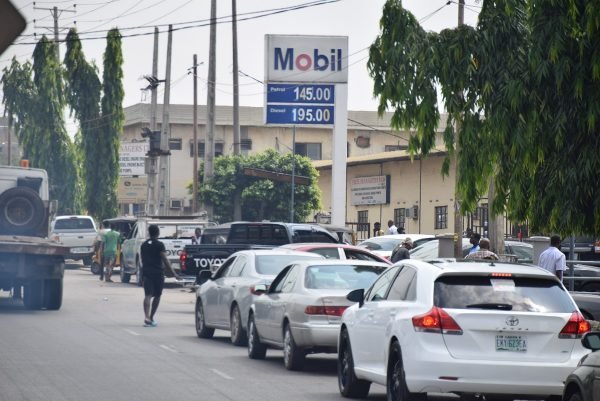Traffic!
I was close to accepting traffic congestion as commonplace. Why? The roads are rarely free during the day and night. This is either due to a broken vehicle blocking the roadway, an accident or queues (which are recently making the roads in cities across Nigeria), civil construction and a resulting diversion, or the daily-increasing number of vehicles on the roads.
Thus, road users waste useful and productive hours in gridlocks on the road to and from work. Other times, there are varying levels of damages on vehicles due to the rush to get moving, and road traffic laws offenders get on the increase. However, becoming an everyday situation, in most major cities around the world, for instance, little attention has been given to the dangers of road traffic and prolonged exposure in road traffic congestion.
In fact, there are people though, that view traffic congestions and gridlocks as indicators of a city's economic development. Whether or not this claim is true, there are undoubtedly, perilous consequences associated with road traffic. Having a bad experience yesterday, I thought to review some of the dangers associated with road traffic and suggest few ways to cope with this annoying menace.
MY EXPERIENCE
Yesterday I was visiting a friend's office located along a major dual carrier way in my city. Well, there is a bit of scarcity of energy fluids, PMS particularly. Hence, there are queues at any gas station dispensing at the regulated pump price. My first dose of traffic however, was due to this cause. At a Mobil station, vehicle owners eager to get spots on the queue, and impatient ones too who have everything against orderliness, caused a blockage on the road. I got stuck in what had become my first girdlock of the day for about 45 minutes. This was in the afternoon when the heat of the beautiful only caused an additional stress.
(photo is adopted)
(
The second dose was even in the night, when the road is expected to be free. A long vehicle (truck) had a breakdown at a sensitive part of the road I took going back home. At this point there was no room for a detour or a return. Everyone had to stay stuck! For me it was the second time in one day. The funny thing was that my decision to use this supposed alternative route was to avoid “hold ups” along the usual road. But I got the opposite instead. I can't describe how tired, stressed I had become when after about an hour, I got to my house. This means that the plague of road traffic is prevailing, even around the clock.
THE DANGERS?
POISONS THE AIR
Particularly in cities where motorists have a poor maintenance habit, emission of nitrogen oxides and carcinogenic substances cannot be avoided. More so when diesel engine vehicles, heavy duty engines, and smaller ones all move on the same road. These pose serious problems to public health. Studies have found that 10% of respiratory infections in European children are as a result of pollution caused by emissions from road traffic. Nitrogen oxides and sulphur dioxide emitting by vehicle contribute to acid rain, which contaminates natural water and damages vegetation and aquatic life. This too is a key contributor to global warming.
HOLE IN THE ECONOMY
It is not a hard truth that traffic congestion also costs money. How? Hundreds of thousand litres of fuel are wasted daily as a result of traffic. The number of productive hours and opportunities are reduced as people are delayed to appointments and businesses. Sometimes additional money has to be spent on health care because of prolonged traffic congestion.
RAGE VENTING
Drivers encountering gridlocks become more aggressive and most times vent their anger on other drivers. Some become IMPATIENT hence they resort to reckless driving, posing dangers to themselves and other road users. This contributes to stress and other health risks.
WHAT CAN BE DONE?
BE PREPARED: Simply put; avoid being in a rush state. If you're are in a city with traffic congestions, always allow some extra time for your trip. Avoid getting already stressed-out before getting stuck in the traffic. A good night sleep and an early start in the morning is vital. This can allow you time, if your circumstances permit, to get a morning exercise. A regular exercise program can improve the physical strength to cope with the stress of getting stuck in traffic. Also, never be stuck in a traffic with no food in the stomach as this will heighten the stress.
Give attention to the condition of your vehicle. A breakdown of vehicle while in a gridlock can prove to be a serious stress. So keep vehicle in good repair. Additionally too, always have enough fuel in the tank.BE INFORMED: Receiving information on special conditions such as bad weather condition, temporary closure, road construction, and other traffic conditions, before setting out can be useful. Get acquainted with alternative routes.
BE PRODUCTIVE: As much as possible avoid mulling over the bad traffic condition as this will increase stress and tension, rather engage in positive thinking. If you're a passenger, this could be an opportunity to read pages from you favourite book, look at the newspaper or respond to your Internet and social communication channels.
You know, residents of major cities of Nigeria, Africa, and around the world have had to deal with this situation, and unknowingly absorbing the damaging effects. This piece tends to invoke our consciousness to the dangers associated with traffic and ways we can cope!
Thank you for reading.